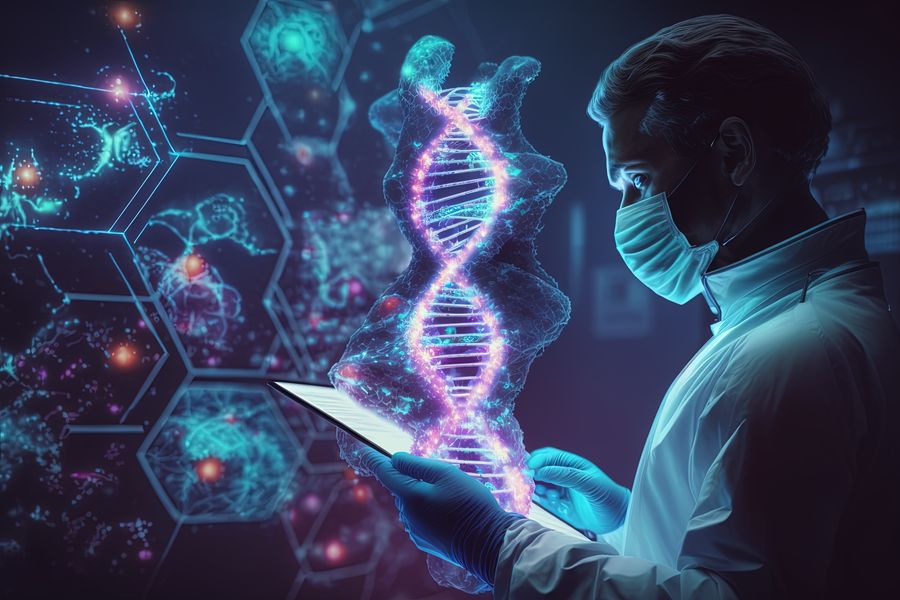
We are delighted to have hosted - successfully hosted, our very first event: ‘Neural Networking’.
It was an exclusive event where over 30 people attended, we heard from leaders within the Machine Learning market: Trevor Back and Viswadeep Sarangi, and were able to network with likeminded people.
Due to the confidentiality of Trevor’s talk we couldn’t film it (you’ll just have to come to the next one😉). However, we were able to film Viswadeep’s and a result were able provide a summarized breakdown of his talk. But first, here’s a little info about the two speakers…
Our Speakers:
Trevor Back - Co-founder and CEO of Shift Lab
Trevor’s Talk: Applicable Applied AI
A bit about Trevor:
"I was the first Product Manager at DeepMind, and spent 9 years there on the translation of artificial intelligence to industry problems in consumer, automotive, deep tech and healthcare. I was then a founding member of DeepMind Health where I led the Research team to multiple Nature publications. Prior to DeepMind, I completed a Ph.D. in Computational Astrophysics at the University of Edinburgh.
And now, I'm the CEO and Co-founder of Shift Lab, where we are building these breakthroughs into real-world products."
Viswadeep Sarangi – ML Engineer at Sensyne Health
Viswadeep’s Talk: End-to-end Machine Learning for Healthcare Applications, R&D and Beyond
"My passion is in developing ML solutions, for clinical and healthcare purposes, for disease diagnosis, prediction & medical knowledge discovery. I've been involved in the field of clinical AI/ML for over 5 years now.
I invested the first half of my career in clinical AI, in understanding how machine learning technology can help in disease diagnosis and prediction, through a Research Fellowship and a PhD program. In the latter half, I learned how to deploy the researched models into a commercial product, ensuring continuous model learning and updating pipelines, through a post doctorate and current ML Engineering role."
Viswadeep Sarangi – ‘End-to-end AI in Medicine: Challenges’ - Key Points
The foundation of Viswadeep’s talk was built off his own personal journey in developing AI for medicine and it was broken down into three stages:
1. Pure research in clinical AI (PhD)
2. Translation from pure research to product (post doctorate)
3. ML Engineering (Sensyne Health: current)
Throughout, Viswadeep highlights the challenges encountered and the solutions implemented.
1. Pure Research in Clinical AI
Viswadeep’s PhD was focused in wanting to solve a real problem: to try and develop AI that can diagnose clinical gate conditions. With a focus on Parkinson’s and Osteoarthritis, you can detect early warning signs of the illnesses from somebody’s style of walking (of course, if you know what to look for).
Initially, it was detected that it was a time series, data classification problem and as a result, would be a perhaps straightforward problem to solve. To conduct the research, he tracked 20 points on the human body and how those points then moved in a 3D space.
Challenges Faced and Solutions Implemented
Challenges | Solutions |
Data collection, ethics approval | Time consuming, but standard protocol |
Data size discrepancies | Random sampling; data augmentation |
Time-series to static feature vector representation | First-order statistical descriptors; motion-path signatures; fourier transforms; wavelet transforms |
Lack of reasoning behind feature engineering in literature | Intuition based; develop intuition from experience; time consuming |
Model performance vs. explainability | Sacrifice performance for explainability |
This is what Viswadeep realised was going to be the main crux of his thesis: trying to create a structure for a time series data – is there an underlying philosophy to figure out how best to extract these features from the data?
By the end of the PhD, it was evident Viswadeep had to sacrifice using the model that was performing well with one that had stronger explainability.
As a result, however, funding was given so the research was put into a product and doctors can use it to assess patients and provide the virtual, physiotherapy needed.
2. Challenges of Translation of Research to Product
Of course, with any research undertaken, the hope is that it’s then translated into a product. However, that in itself, has challenges…
Challenges Faced and Solutions Implemented
Challenges | Solutions |
Integration with healthcare provider’s digital infrastructure | NHS has strict rules on data exports; patient anonymisation |
Minimise disruption to clinician’s daily practice protocol | Shadowing doctors, clinicians
|
Secure data pipelines | Data security engineer (hired) |
Responsive, user friendly front-end for clinical sessions, integrated data collection and model predictions | Front-end engineer (hired)
|
For Viswadeep, it highlighted the importance of applicability of research in general which is why he’s headfirst in the Engineering side of things: working as an ML Engineer at Sensyne Health.
3. ML Engineering (Sensyne Health)
The team at Sensyne Health produced an algorithm which helped to predict Covid-19 in an individual, but also in understanding the level of resources a hospital might need based off the number of covid-19 patients (and was approved!)
Challenges Faced and Solutions Implemented
Challenges | Solutions |
Quickly iterate over ML models, grid-search | Azure Compute Clusters |
Lineage tracking of ML models | MLFlow (AzureML) |
Versioned storage of models, artefacts | Azure Data Lake |
Automated standardisation of raw data from multiple healthcare providers | PostgreSQL, psycopg2, DBT (Data Build Tool), Docker containers, cron jobs |
Deployment at scale | FastAPI, Docker container, Kubernetes |
Updation of models without service downtime | Canary deployment strategy |
Bespoke Python package; github; circleci; setuptools => poetry
4. Lessons Gathered
If you’d like to see Viswadeep’s full video which includes Q&A, please
If you’ve seen all the post-event content from our Neural Networking Event and have any questions or would like to keep informed with any upcoming events, please feel free to reach out!
